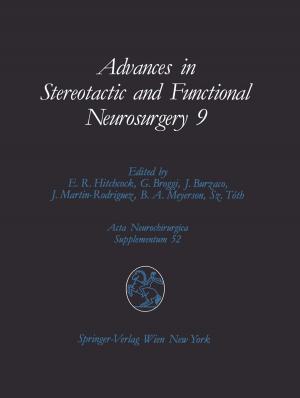| Author: | U. Lindberg, L. Philipson, U. Pettersson | ISBN: | 9783709183915 |
| Publisher: | Springer Vienna | Publication: | December 6, 2012 |
| Imprint: | Springer | Language: | English |
| Author: | U. Lindberg, L. Philipson, U. Pettersson |
| ISBN: | 9783709183915 |
| Publisher: | Springer Vienna |
| Publication: | December 6, 2012 |
| Imprint: | Springer |
| Language: | English |
I. Introduction In his biography "Arrow in the Blue" the author Arthur Koestler suggests ironically that the fate of an individual may be predicted by examining the content of the newspapers at birth. Adenoviruses were discovered in 1953 (ROWE et al. , 1953; HILLEMAN and WERNER, 1954). At this time the Salk poliomyelitis vaccine was developed (SALK et al. , 1954) and in the same year the discovery of the double helical structure of DNA (WATSON and CRICK, 1953) and the plaque assay for one animal virus (DULBECCO and VOGT, 1953) was announced. Thus, this new group of viruses was born with great hopes for progress in molecular biology and for the control of animal virus infections. In the short interval be tween 1953 and 1956 the adenoviruses were discovered, methods for laboratory diagnosis and serotyping were established, the epidemiology was clarified and a highly effective vaccine was developed and approved (for a review see HILLE MAN, 1966). Succeeding years showed, however, that the vaccines were contami nated with the oncogenic SV 40 virus and that the adenoviruses themselves were tumorigenic. Since the discovery of adenoviruses animal virology was developed into a quantitative science offering explanation for viral functions at the molecular level. Precise biochemical tools to characterize the genome and its transcription products as well as the structural proteins of these viruses are now available.
I. Introduction In his biography "Arrow in the Blue" the author Arthur Koestler suggests ironically that the fate of an individual may be predicted by examining the content of the newspapers at birth. Adenoviruses were discovered in 1953 (ROWE et al. , 1953; HILLEMAN and WERNER, 1954). At this time the Salk poliomyelitis vaccine was developed (SALK et al. , 1954) and in the same year the discovery of the double helical structure of DNA (WATSON and CRICK, 1953) and the plaque assay for one animal virus (DULBECCO and VOGT, 1953) was announced. Thus, this new group of viruses was born with great hopes for progress in molecular biology and for the control of animal virus infections. In the short interval be tween 1953 and 1956 the adenoviruses were discovered, methods for laboratory diagnosis and serotyping were established, the epidemiology was clarified and a highly effective vaccine was developed and approved (for a review see HILLE MAN, 1966). Succeeding years showed, however, that the vaccines were contami nated with the oncogenic SV 40 virus and that the adenoviruses themselves were tumorigenic. Since the discovery of adenoviruses animal virology was developed into a quantitative science offering explanation for viral functions at the molecular level. Precise biochemical tools to characterize the genome and its transcription products as well as the structural proteins of these viruses are now available.















